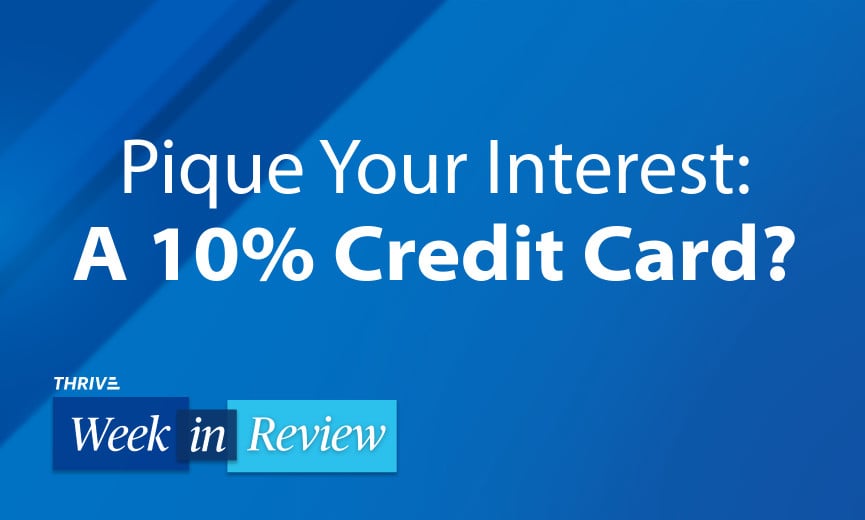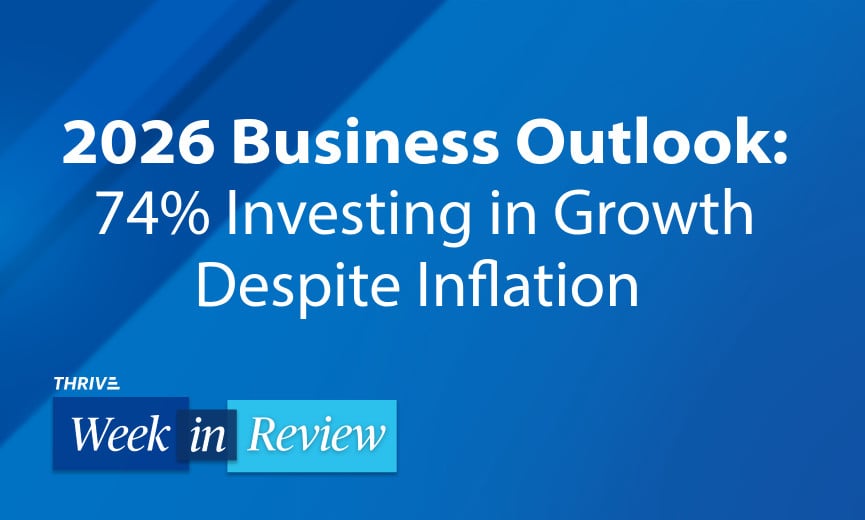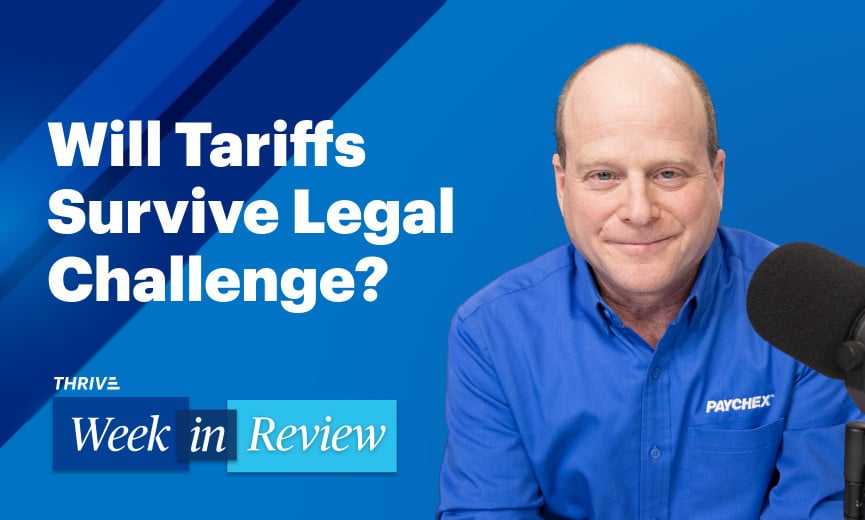- Thrive
-
Temporada
4Episodio78
Formulario I-9 y tarjetas Visa: Inspecciones de documentos y recargos en persona

Podcast •

Resumen
During the COVID-19 pandemic, employers were allowed to review employee documents related to Form I-9 remotely. The process is reverting to in-person, physical review of such documentation. By Aug. 30, 2023, any employer who reviewed an employee’s documents remotely must now review those same employee documents in person. Gene Marks discusses this and other changes on the new I-9, as well as why Visa has announced it will crack down on businesses charging surcharges for card usage that break the terms of the agreement. Penalties could be stiff. Listen to the podcast for more details.
Ver transcripción
Hey, everybody, this is Gene Marks, and welcome to another episode of the Paychex THRIVE Week in Review podcast. Thank you so much for joining me this week. So, as you know, this podcast, every week I take a few items of things that are in the news that impact your small business and my small business and talk a little bit about them and how they impact it.
So, this week we have two items that impact our small businesses that I want to spend time on. So, let's get right to it.
The first item has to do with I-9 forms. Now, for any employer, we all know that when you hire a new employee, part of the paperwork is an I-9 form that gets filled out.
What that does is you submit it to the federal government because it verifies that the employee has the right to work. They're a citizen or they have a green card, and you know, they are okay and legal to work in the United States.
Well, when COVID happened, the I-9 form itself to verify the documents supporting the I-9 form, you could do it remotely and by doing it remotely, because obviously people couldn't come to work and, you know, it was a bit of an issue, so you could do that.
You can also use a system called E-Verify, as well. E-Verify is a system where if you put in employees’ information, it'll look at the Department of Homeland Security to match that information with their passport information or other documentation to say that, yeah, this person is okay and legal to work in the United States.
Okay, so that was during COVID where all that stuff is being done remotely. Well, that's ending. In fact, it ended at the end of July and by Aug. 30 of this year – and this is according to a report in the Society for Human Resource Management, as well as from the Department of Homeland Security – the rules have changed, which means that by Aug. 30 of this year, you have to physically inspect any of the documentation; the green card, passport, whatnot for your employees that are previously submitted an I-9 form to use. You have to go back and do that now physically. You have to do it again.
If you were relying on it remotely before, that was fine up until July 31, but now the government is saying like, okay, we now want you to go back and you need to look at these documents physically, and then you're going to report that on a new I-9 form.
The I-9 form that's new. It's been revised, it's been made simpler. It's like one page with condensed instructions, but it's something that you're going to have to, you know, you're going to have to rely on.
Now, can you use the E-Verify system? Yes, you can, but the federal government still requires for I-9 that you physically inspect the documents regardless of whether you're using the E-Verify system or not. Some states, though, will allow you to just use the E-Verify system without physically inspecting. But, just so you know, the Department of Homeland Security, they want you to physically inspect these documents.
So, you need to make sure that you're on top of that now. This is right now. We're into the second week of August. We only have another 2 to 3 weeks to go before the month ends and the deadline happens, and you've got to make sure that your ducks are in order.
You may ask, “What if I have remote employees and I just I can't get around to see that they're in different parts of the country?” You can designate an authorized representative of your company who certifies to you, you know, probably in writing – I would say in writing – that they that they have physically inspected those documents, as well. So, you can ask somebody to do this on your behalf and get that confirmation in writing.
So, even if you have that worker that's 1,000 miles away, you can find somebody in that worker's hometown; a CPA, an attorney, somebody, a notary public, somebody that can actually go and inspect those documents on your behalf and report back to you.
So, the good news is this: If you need any help doing this or assistance in filling out these forms or just tough questions about the new rule, you should definitely be talking to your payroll service provider – and clearly that's Paychex if you're listening to this podcast and you're a Paychex customer.
So, make sure that you're in compliance. This rule – the deadline is coming up in just a couple of weeks. It is something that you really want to be paying attention to. So, that's the first item of news.
The second of item news this week that impacts us has been reported by both Fortune magazine and Bloomberg News, and It has to do with Visa. Now, as you're well aware, a lot of the credit cards that are out there are the Visa cards and whatever, they have a surcharge. So, a lot of businesses to make up for that surcharge, you know, they've been turning around and charging their customers. That happens all the time.
I just went to a restaurant just this morning, actually, and I used my credit card and it literally says we're going to charge of 3% surcharge for you to use your credit card in the restaurant. You don't get that surcharge if you use cash. So, that's been happening all around the country.
Visa last week announced that they're going to start cracking down on these surcharges. Now, they say that the limit to a surcharge: They say (to) their customers is 3%. Used to be 4%, but now it's down to 3%, and they're now requiring merchants to give their payment processor – that’s Visa – 30 days’ notice before starting to surcharge consumers, and businesses aren't allowed to impose a fee that's more than the cost of accepting that card.
So, if you're going to charge more than 3%, you are breaking the terms of the agreement that you have with your credit card processor, if it's Visa. Now, if you do break that rule, what your liability? Visa says that a second and third violations can carry fines of anywhere from $5,000 to $25,000, and they have started issuing these fines already this year.
Now, how can, you know, can you get caught doing this? Well, here's some more bad news. Visa is actually sending in-person auditors to ensure that their merchants are applying the surcharges properly, according to a client notice that Bloomberg News has seen and reported on.
So, the bottom line is this: If you are charging a surcharge for those customers that are using your, you know, your Visa card and that surcharge is more than 3%, you're actually violating the terms of your agreement with your credit card processor. So, that's a problem, and you're going to have to address that and be aware that companies like Visa are now sending in-person auditors to see what you're doing, just to validate that you're not breaking the terms of your agreement.
My name is Gene Marks and you've been listening to the Paychex THRIVE Week in Review podcast. If you've got any guests or advice or things that you like to suggest to us, please visit us at payx.me/thrivetopics.
Again, my name is Gene Marks, and I will be back with you next week with a few items in the news that impact both your and my small business and some thoughts on how we navigate around that news. Thanks for listening and watching or listening. We will see you again next week. Take care.
Este pódcast es propiedad de Paychex, Inc. 2023. Todos los derechos reservados.

 Apple Podcast
Apple Podcast Spotify
Spotify iHeartRadio
iHeartRadio








